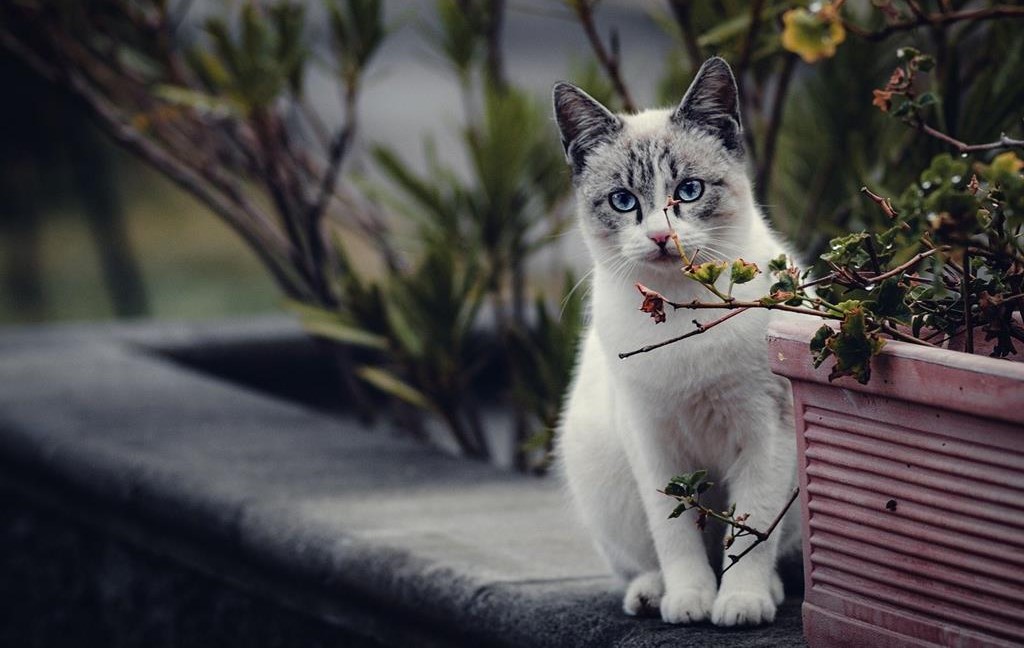Ragdoll cats are known for their affectionate nature and striking appearance, but like all feline companions, they can occasionally experience health issues. One common concern that can affect Ragdoll cats is diarrhea. While an episode of diarrhea can be unsettling for both the cat and the owner, it’s essential to address the issue promptly to ensure your feline friend’s well-being. In this article, we’ll delve into the possible causes of Ragdoll cat diarrhea and explore effective ways to manage and prevent it.
Common Causes of Ragdoll Cat Diarrhea
- Dietary Changes: Abrupt changes in a Ragdoll cat’s diet can lead to digestive upset, including diarrhea. Cats are creatures of habit, and introducing new foods too quickly can disrupt their sensitive digestive systems.
- Food Intolerances and Allergies: Just like humans, cats can develop food intolerances or allergies that trigger gastrointestinal issues such as diarrhea. Common allergens include dairy, wheat, and certain proteins.
- Infections: Bacterial, viral, or parasitic infections can cause diarrhea in Ragdoll cats. These infections can be contracted through contaminated water, food, or contact with other infected animals.
- Stress and Anxiety: Ragdoll cats are known for their sensitive nature, and stressors such as changes in the environment, new pets, or disruptions to their routines can lead to digestive disturbances, including diarrhea.
- Medications: Some medications, especially antibiotics, can disrupt the balance of gut bacteria and result in diarrhea as a side effect.
- Inflammatory Bowel Disease (IBD): IBD is a chronic condition that affects the gastrointestinal tract, causing symptoms such as diarrhea, vomiting, and weight loss. Ragdoll cats, like other breeds, can be prone to this condition.
Managing Ragdoll Cat Diarrhea

- Hydration: Diarrhea can quickly lead to dehydration, which can be dangerous for cats. Make sure your Ragdoll has access to clean, fresh water at all times. If your cat’s diarrhea is severe, you might need to offer oral rehydration solutions prescribed by a veterinarian.
- Dietary Management: If you suspect a dietary trigger, consider transitioning your cat to a bland diet for a few days. This could include boiled chicken or rice, as these are gentle on the stomach. Gradually reintroduce their regular food to monitor their response.
- Consulting a Veterinarian: If your Ragdoll cat’s diarrhea persists for more than 24 hours, is accompanied by other symptoms, or appears severe, it’s crucial to consult a veterinarian. They can diagnose the underlying cause and recommend appropriate treatment.
- Stress Reduction: If stress is suspected as a cause, try to identify and minimize stressors in your cat’s environment. Providing a safe and quiet space can help your Ragdoll feel more at ease.
- Medication: Depending on the cause of the diarrhea, your veterinarian might prescribe medications to address infections or inflammation. Follow their instructions carefully and complete the prescribed course.
Preventing Ragdoll Cat Diarrhea
- Gradual Diet Changes: When transitioning to a new diet, do so gradually over a week or two to give your cat’s digestive system time to adjust.
- High-Quality Diet: Feed your Ragdoll cat a high-quality, balanced cat food that meets their nutritional needs. Look for formulas that are free from common allergens.
- Regular Vet Visits: Schedule regular check-ups with a veterinarian to monitor your cat’s overall health and catch any potential issues early.
- Stress Management: Create a calm and consistent environment for your Ragdoll cat. Provide hiding spots, scratching posts, and interactive toys to keep them mentally stimulated.
FAQs on Ragdoll Cat Diarrhea
1. Why is my Ragdoll cat experiencing diarrhea?
Ragdoll cat diarrhea can have various causes, including dietary changes, food intolerances, infections, stress, medications, and conditions like inflammatory bowel disease (IBD). Identifying the underlying cause is essential for proper treatment.
2. Should I be concerned about dehydration due to my cat’s diarrhea?
Yes, diarrhea can lead to dehydration in cats, which can be serious. Make sure your Ragdoll cat has access to clean water at all times. If the diarrhea is severe or prolonged, consult a veterinarian, who might recommend oral rehydration solutions.
3. Can I manage my Ragdoll cat’s diarrhea at home?
For mild cases, you can manage your cat’s diarrhea at home by offering a bland diet, ensuring hydration, and monitoring their condition closely. However, if the diarrhea persists, is severe, or is accompanied by other symptoms, consult a veterinarian.
4. Is stress a common trigger for Ragdoll cat diarrhea?
Yes, Ragdoll cats are sensitive animals, and stress can disrupt their digestive system, leading to diarrhea. Changes in the environment, routine, or the introduction of new pets can all contribute to stress-related diarrhea.
5. Should I change my Ragdoll cat’s diet if I suspect food allergies?
If you suspect food allergies, consult a veterinarian before making any dietary changes. They can guide you through an elimination diet to identify the allergen. Abruptly changing the diet can worsen the situation.
6. When should I consult a veterinarian for my Ragdoll cat’s diarrhea?
If your Ragdoll cat’s diarrhea persists for more than 24 hours, is severe, is accompanied by vomiting, lethargy, blood in stool, or weight loss, consult a veterinarian. They can diagnose the underlying cause and recommend appropriate treatment for your cat’s specific condition.
Conclusion
Ragdoll cat diarrhea can be a distressing experience for both pets and owners. By understanding the potential causes and following appropriate measures for prevention and management, you can help your beloved Ragdoll cat maintain good digestive health. Remember that if your cat’s diarrhea persists or worsens, seeking professional veterinary guidance is always the best course of action to ensure your furry friend’s well-being.



